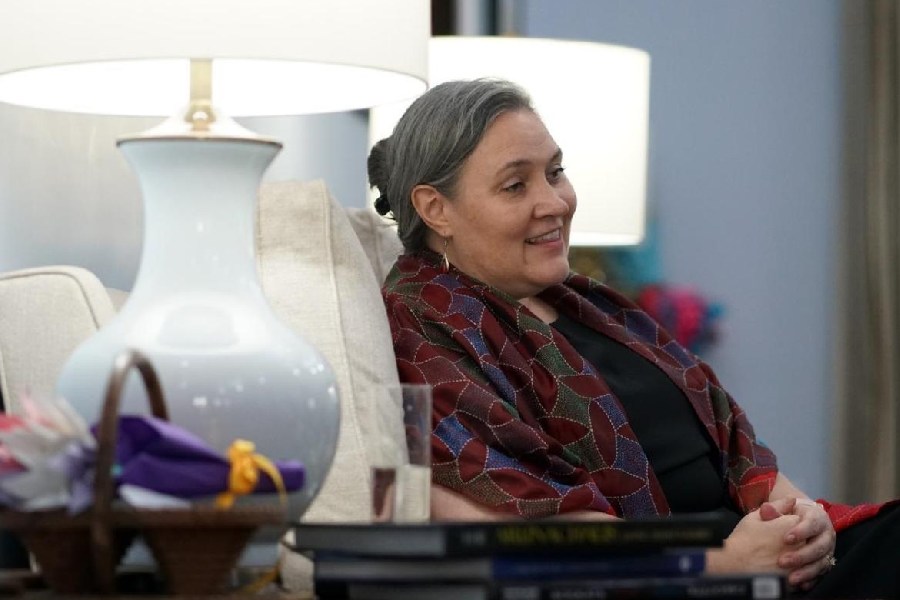A city that revels in the past and the future simultaneously. A city that celebrates festivals rising above religious divisions. A city that like its giant banyan tree embraces death and new life together.
The outgoing US consul-general, Melinda Pavek, looked back at her Calcutta stint in a chat with Metro on Monday.
Pavek became a foreign service officer with the US department of state in 2004. She began her assignment at the US consulate general in Calcutta in August 2021. Tokyo, Islamabad, Lahore, Kathmandu and Baghdad are some cities she served in before coming to Calcutta.
Excerpts from the conversation. The italicised portions have been added by this newspaper for context.
City connect
Kolkata is a city that revels in its past, its present and in its future, all at one time. I think that is something unique. I have experienced it in Lahore. I feel Lahore and Kolkata are almost twins in a lot of ways. Both cities are cultural capitals. Both cities have an amazing history of people and cultures blending and living in wonderful harmony for a long time. Both cities have this awful legacy of Partition, violence and bloodshed.
Festival of togetherness
The generations before directly experienced the violence and bloodshed. That kind of trauma influences our DNA. There is an understanding of how horrible it is when we divide people based on something that is a human construct. Because, when it comes down to it, religion is a human construct. Which religion people belong to is often an accident of birth. That is why I love the way Kolkata celebrates festivals. Everyone comes out together to celebrate the different festivals. I hope that continues because I think it is really important.
Home-cooked meals
A lot of times, when I go out to eat, I go to eat at people’s homes. It is not necessarily going out to specific restaurants that is important. But it is being invited to people’s homes, to try their home-cooked meals, to hear about the stories. For example, a Sikh family invited me and they have a gurdwara at home. I had an opportunity to not only eat speciality dishes but also to understand the rituals in the gurdwara in a way that I had never experienced.
Tree truth
I wish I had discovered the botanical gardens (in Shibpur, Howrah) earlier. I went there just recently when a friend was here. It was so magical to see the legendary great banyan tree. Its original area died off (the 274-year-old tree lost a large portion of its canopy when Cyclone Amphan struck the city in May 2020 and restoration work is on) but it continues to grow. That feels like the city (Calcutta) itself. Different parts of the city have grown. Different parts are maybe dying but then they have rejuvenated in other parts. The families that lived in north Kolkata may have moved to south Kolkata or maybe New Town. The population of Kolkata is kind of like the banyan tree.
Climate challenge
The city needs to work on adapting to climate change. We have seen increasingly violent storms, changes in the monsoon pattern, and intense heat waves. While the city has so much greenery that there is a lot of natural improvement to some of the heat-island issues (an urban heat island is a metropolitan area that is significantly warmer than other areas because of concrete density and dwindling greenery and water bodies, among other factors), I think there is more opportunity for improvement.
More rooftop solar panels, and more green buildings so the interiors are cooler without air-conditioning. In some ways, the city needs a bit of reversion to the original Kolkata building style. The courtyards, where the wind has a chance to blow through, create a more liveable environment though it is really hot and humid.
Election spectacle
It is a spectacle to behold, just in terms of the logistics involved. In the US, we all vote on the same day or in the lead-up to that day. To see (in India) how the different parts of cities and states had different election dates; how that meant police and security and election folks could be in different places and you had to manage those logistics. It was really impressive. It was interesting to see how political parties responded. It is so interesting to see the way the parties could pivot their messaging and their approach to voters.











